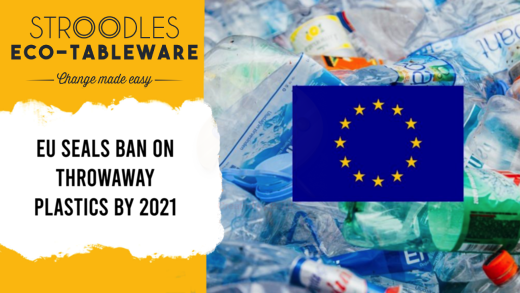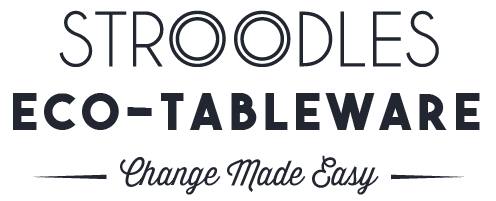



Did you know that our global consumption of plastic is leading to roughly 320 million tonnes of plastic being produced annually, which shockingly only 9% actually gets recycled? As you can imagine, this is leading to way too much plastic leaching into our environment. According to the European Commission, more than 80% of marine litter is plastics, all of which threatens the existence of marine life, from tiny fish to big mammals and amphibians, but is also having many other devastating impacts on our environment, all of which will be explained in this blog post.
Luckily, public support for reducing all this plastic polluting our oceans is at an all time high. Images of single-use plastic heaps on beaches and plastic debris harming our wildlife continue to fuel consumer desire for more sustainable products, which is leading to an increasing demand for the European Parliament to take action and finally do something about this huge amount of plastic circulating our oceans. Last year, the European Parliament finally voted for a complete ban on a range of single-use plastics across the union to be introduced in 2021. So, with this ban being introduced next year, we thought it would be useful to tell all our fellow stroodlers exactly what the ban is, when it will be enforced, as well as how you can prepare for the changes that the ban will cause. Credit: Europarl
Credit: Europarl
What is the EU ban on single use plastics?
The new law banning single-use plastics will come into force across all EU member states by 2021 and will help to reduce the plastic waste that currently pollutes our oceans and beaches.
So, what does this mean? Technically, the following products will be banned in the EU by 2021:
Additionally, EU member states will also have new recycling targets with increased responsibility for producers. The collection target for plastic bottles will have to be 90% achieved by 2029, plastic bottles will have to contain at least 25% recycled content by 2025 and 30% by 2030.
The European Parliament argues that the agreement will also strengthen the application of the “polluter pays” principle by introducing extended responsibility for producers to ensure that manufacturers bear the costs. This regime will apply, in particular, to tobacco and to fishing gear, ensuring that manufacturers bear the cost of collecting nets lost at sea.
This new EU legislation will also make it mandatory for packaging to warn consumers of the environmental damage they will do by disposing of certain items incorrectly. This labelling will appear on cigarettes, plastic cups, wet wipes and sanitary towels.
What are single use plastics and why are they a problem?
Single-use plastics are goods that are made primarily from fossil fuel–based chemicals, and are meant to be disposed of right after use (often, in minutes!). Single-use plastics are most commonly used for packaging and service ware such as plastic cutlery, bottles, wrappers, straws, and bags.
We produce roughly 300 million tons of plastic each year and half of it is disposable! The nature of petroleum based disposable plastic makes it difficult to recycle and they have to add new virgin materials and chemicals to it to do so. Additionally there are a limited number of items that recycled plastic can be used.
Petroleum based plastic is not biodegradable and usually goes into a landfill where it is buried or it gets into the water and finds its way into the ocean. Although plastic will not biodegrade (decompose into a natural substance like soil,) it will degrade (break down) into tiny particles after many years. In the process of breaking down, it releases toxic chemicals (additives that were used to shape and harden the plastic) which make their way into our food and water supply. These toxic chemicals are now being found in our bloodstream and the latest research has found them to disrupt the Endocrine system which can cause cancer, infertility, birth defects, impaired immunity and many other ailments. Credit: Change.org
Credit: Change.org
There is currently around 150 million tonnes of plastic circulating our beautiful oceans, all of which threatens the existence of marine life, from tiny fish to big mammals and amphibians. Marine wildlife often consume plastic, mistaking it for food, which more often than not sadly causes either severe digestive problems or death. In addition to causing injury/death to these fish, it then also spreads the risk across the food chain, causing bigger fish and marine mammals to suffer too. Marine plastic pollution is also threatening the life of birds, as a lot of the time birds also suffer from suffocation or ingestion of plastic.
Another big problem with plastic is that it is made from unsustainable materials such as coal and crude oil, meaning that the manufacturing process of plastic itself is terrible for our planet. In fact, the plastic industry is one of the most greenhouse gas intensive industries in the manufacturing sector, and is therefore accelerating global warming.
We produce hundreds of millions of tons of plastic every year, most of which cannot be recycled. It’s obvious that we need to use less plastic, move towards environmentally sustainable products and services and come up with technology that recycles plastic more efficiently.
How you can prepare for these changes
At Stroodles we are delighted that the UK has already introduced a ban on single-use plastic items, and that now the European Parliament have finally voted for a complete ban on a range of single-use plastics across the union to be introduced in 2021, in a bid to stop pollution of the oceans.
All catering establishments such as bars, restaurants and cafes in the participating EU member states won’t be able to display plastic straws, hand them out, or even offer them to customers, nor will shops and supermarkets will not be allowed to sell plastic straws. At Stroodles we are absolutely over the moon with this news, as, if you have read our blog post on why plastic straws are bad for the environment, you’ll understand why! Luckily, at Stroodles we have the perfect alternative - take a look here!
With other single use plastic items such as plastic cutlery and plastic stemmed cotton buds to soon be banned for all EU member states, there is a real need for plastic alternatives, which luckily, already exist! Have a look at our blog post for some really great alternatives. With so many plastic alternatives popping up nowadays, making plastic free swaps can actually be super easy - it just requires a little research!